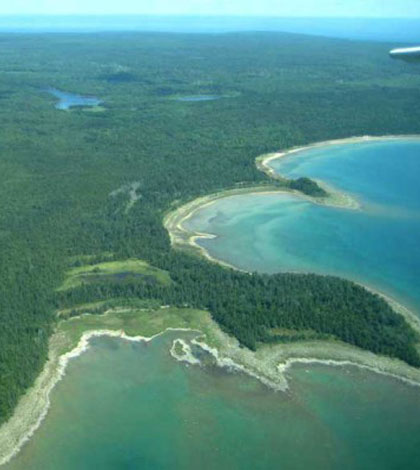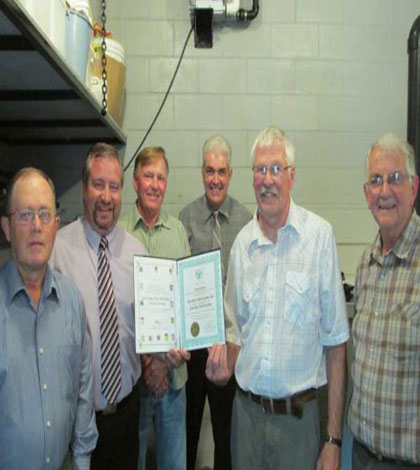MANITOULIN—The founder of Algonquin Eco watch is reminding the International Joint Commission (IJC) that in looking at water quality, that water quantity (levels) should be kept in mind as lower water levels have had adverse effects on the former.
“I did send in my comments to the IJC,” said Mike Wilton when contacted by the Recorder on Monday. “Even though this (IJC) board is looking at water quality, which in a way may not be relevant to us, the IJC should be reminded of its faults concerning water levels.”
“Basically in my letter I’m saying you can’t talk about water quality when the water quality has been so compromised,” said Mr. Wilton. “Obviously for Lake Huron we used to have good water quality with good aquatic habitat because wildlife was using it, such as fish and aquatic insects. All of these habitats have been ruined because of lower water levels and the shallow water because these habitats have been wiped out.”
In his letter to the IJC, Mr. Wilton said, “it is an established fact that wetlands contribute significantly to water quality. During the past 15 years the water level in the Lake Huron/Michigan basin has been allowed to drop well over one metre. The resultant effect upon wetlands surrounding Manitoulin Island, many of which are class 1, has been disastrous. These wetlands are essential to the maintenance of a healthy food web, providing habitat for waterfowl, reptiles, amphibians and crustaceans, as well as spawning and feeding areas for various fish species.”
According to Mr. Wilton, the IJC has consistently refused to create a water control board for the Lake Huron/Michigan basin, based on the argument that there is no control structure for the basin–creating a perfect “Catch 22” situation, for example there can be no structure since there is no board and there can be no board since there is no structure.
Mr. Wilton asserts that “if there were a control structure or structures placed at the mouth of the St. Clair River, our precious wetlands could be saved and (at least some of them) restored to their former productivity. This would lead not only to improved water quality, but also to stabilized wetlands, with naturally occurring fluctuations, throughout the entire basin. It is obvious to me that two co-operative boards, one concerned with water flow/level stabilization and one with water quality control, should be operating in parallel, under the umbrella organization of the International Joint Commission.”
Mr. Wilton said that he is not so naïve as to feel that this might happen quickly, but said that for the past 15 years both governments have done little but discuss possibilities, while those concerned with the issue “have stood helplessly by and watched our shoreline diminish toward the horizon.” Mr. Wilton concludes with a plea. “With respect, please act quickly, before it’s too late.”
The 2012 Great Lakes Water Quality Agreement directs the IJC to create a Great Lakes Water Quality Board (WQB) to be its principal advisor and a Great Lakes Science Advisory Board (SAB) to inform the commission and the WQB on scientific issues related to the agreement. In keeping with the commission’s view that transparency and public input are valuable to guide its decisions, the commission is giving the public an opportunity to comment on the proposed detailed functions (for example board mandates), structure and competencies required for membership on these two boards. The detailed functions proposed by the commission are subject to the approval of the two federal governments, a release explains.
The release continues, “in developing your comments consider responding to questions such as: do the proposed detailed functions fulfill the purpose of the boards under the Agreement?; are the proposed boards structured to provide the commission with the best possible advice while incorporating a healthy range of viewpoints?; and will the competencies proposed for board members ensure relevant and timely work from the boards?”
The public can review and comment at ijc.org/en_/GLWQA_Consult until midnight July 24.
“There was excellent water quality in Lake Huron, now this is a moot argument because it doesn’t exist,” said Mr. Wilton.





